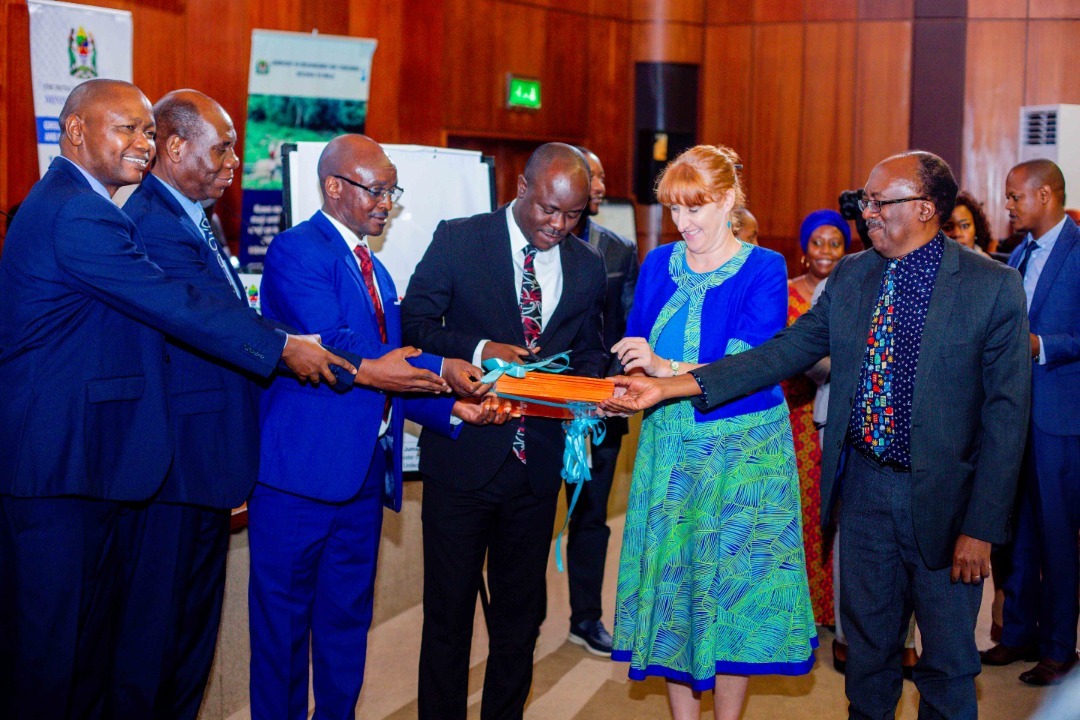GWP Tanzania launches Global Water Leadership Programme; to Mobilize Political Leadership for Sustainable Water Resources Management
Tanzania is water-rich as it sits on Africa’s three largest lakes- Tanganyika, Nyasa and Lake Victoria and has high rainfall. However, that classification may soon change due to population growth and climate change.
The 2020 Tanzania Water Sector Status Report states that Tanzania may have to be re-classified from water-rich to water-scarce by 2035, the year that the Tanzania National Bureau of Statistics projects that the population will have risen to 89 million from the current 40 million. The population had doubled from 20 to 40 million between 2000 and 2020.
The increase in water demands due to population growth in the last decade also coincided with a steady reduction in Government expenditure on water. Analysis of budgetary allocations for water between 2014 and 2018, show that the allocations for water declined from 3.8% to 2.4% .
The Global Water Leadership Programme launched by the Global Water Partnership Tanzania (GWPTZ) on Saturday June 18 during the National Multi Sectoral Forum in Dar es Salaam, will help bring together water sector stakeholders to work together to identify bottlenecks to the implementation of more sustainable solutions to water challenges to ensure that government policies and strategies are addressing those challenges.
Said Aisha Msoka, GWL Programme Coordinator in Tanzania; “We are lucky to have launched the Global Water Leadership programme at a time when Government’s political will towards Water, Sanitation and Hygiene is high. From the highest level i.e the President, the Minister and his team are all out and ready to see that Water is not hindering achievement of all other SDGs.”
Launching the programme, Tanzania’s Minister of Water Honourable Jumaa Hamidu Aweso said water sources protection and conservation is a collective responsibility, urging all stakeholders to play their part.
“Water sources protection and conservation begins with me; it begins with you, and it begins with all of us. So, we are responsible for protecting and conserving our water sources for this generation and the coming generations.
“I urge that this forum, as it has experts from universities and research institutes, should encourage such studies to be conducted regularly to have reliable data on access to water resources in the country. For example, after the Population and Housing Census this year, we will get more accurate population statistics and so it will be a good time to improve the water supply figures for everyone in the country,” explained Honourable Aweso.
He urged that the platform which had brought together various stakeholders in the water and sanitation sector be used to stimulate, enhance knowledge and expertise in research and evaluation of water resources management, construction of rainwater harvesting infrastructure, such as dams, increase efficiency in water use, especially in agriculture, and conservation of resources of water to be sustainable and thus continue to provide water.
The Global Water Leadership Programme is being implemented in 10 countries: Tanzania, Malawi, Madagascar, Rwanda, Uganda, Central African Republic, Chad, Bangladesh, Nepal and the State of Palestine.
Watch this video on YouTube:
Global Water Leadership Programme - What is it?
to learn more about the Global Water Leadership Programme





















